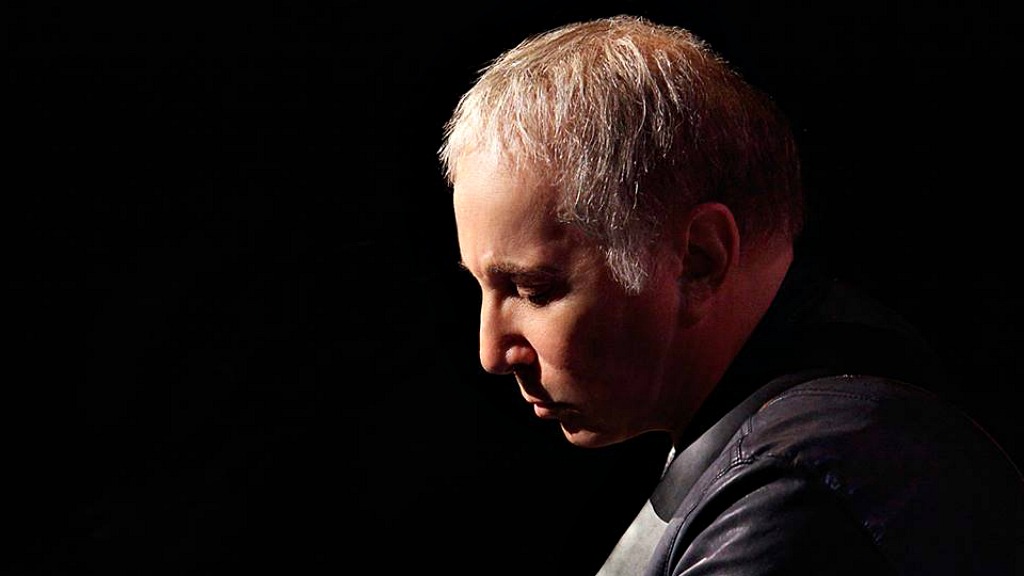FUV Essentials: John Platt on Paul Simon

Paul Simon (photo courtesy of the Concord Music Group, PR)
Although I’ve met Paul Simon a couple of times and edited Pete Fornatale’s interviews with him, I’ve never sat down for a conversation with him. (Note to FUV honchos: bucket list item No. 1.)
Of course, it would be fascinating to explore his creative process, as Rita Houston has done so well, and to trace his decades-long exploration of world music, starting well before the landmark Graceland album. (Think of the Peruvian folk melody of “El Condor Pasa” and the reggae of “Mother and Child Reunion,” just for starters.)
No, what I’d love to talk about is his spirituality. As much as he’s been a sonic explorer, he’s been a bit of a spiritual explorer, if not exactly a seeker. This secular Jew from Queens has drawn on all kinds of references to God — and even Jesus — in his lyrics. For example, from “Silent Eyes”:
Silent Eyes
Burning In the desert sun
Halfway to Jerusalem
And we shall all be called as witnesses
Each and every one
To stand before the eyes of God
And speak what was done
Or from “Slip Sliding Away”:
God only knows
God makes his plan
The information’s unavailable
To the mortal man
We’re working our jobs
Collect our pay
Believe we’re gliding down the highway
When in fact we’re slip slidin’ away
His 2011 album, So Beautiful or So What, is rife with religious references. The opening track, “Getting Ready for Christmas Day,” begins with an excerpt of a sermon by the Baptist preacher, Rev. J.M. Gates. It's then followed by the sardonic “The Afterlife” about trying to get into heaven, not unlike Paul’s “Wristband” predicament on his new album, Stranger to Stranger. A little later, comes the song “Love and Hard Times” in which “God and His only Son/Paid a courtesy call on Earth.”
On the liner notes to Stranger to Stranger, Paul writes that one of the songs, “Proof of Love,” was inspired by a visit to a healer named John of God in a small Brazilian town (just as he once had tea with the English theologian John Stott). And there are these priceless lines from “Street Angel”:
It's God goes fishing
And we are the fishes
He baits his lines
With prayers and wishes
They sparkle in the shallows
And catch the falling light
We hide our hearts like holy hostages
While hungry for the love, and so we bite.
Doctoral students far more learned than I have no doubt done dissertations about this tendency. In an interview with Kim Lawton for the PBS series, "Religion & Ethics NewsWeekly," Paul admitted that spiritual things are "part of my thoughts on a fairly regular basis. I think of it more as spiritual feeling. It's something I recognize in myself and that I enjoy, and I don't quite understand it."
Maybe that’s what’s so appealing: Paul is letting his heart and imagination wander where they will, as he shapes lyrics to fit the rhythms of his music. He’s always had a genius for expressing complex thoughts in deceptively simple, sometimes humorous, terms. His songwriting is so colloquial that we follow right along, and he can address our yearnings and hopes with a clear eye. He promised to be our “bridge over troubled water," a line itself adapted from a gospel song, and as he put it in “Something So Right”:
Some people never say those words
I love you
But like a child they're longing to be told.
As he’s grown older, it’s natural that he might ruminate about his mortality. But clearly, with Simon's marriage to Edie Brickell and their three children, he’s in a positive place. Unlike his contemporary, Bob Dylan, he’s not looking back to the American popular songbook in his golden years, he’s continuing to move forward and invites us to go with him. Simon summed it so simply and yet profoundly in “Train In the Distance”:
The thought that life could be better
Is woven indelibly Into our hearts
And our brains
Thanks, Paul, may your journey go on and on.

